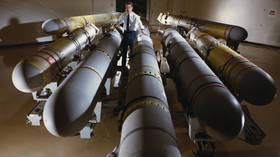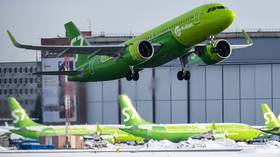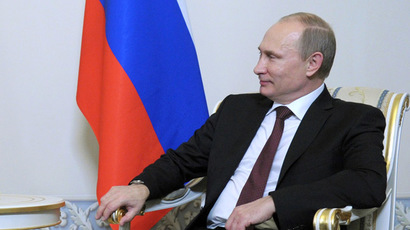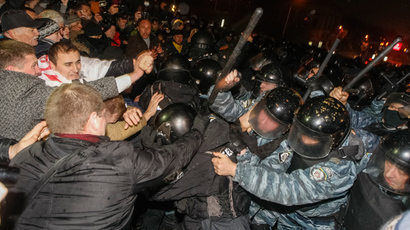EU ready for bilateral talks with Russia over Ukrainian trade deal - official
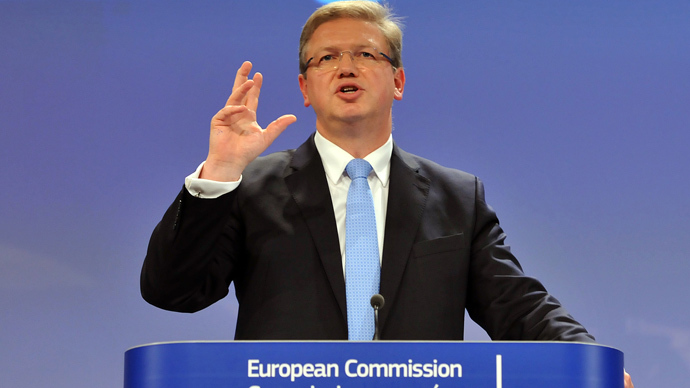
The European Union is ready to discuss issues that are of concern to “Ukraine’s neighbors” in the format of bilateral talks, a spokesman for Stefan Fule, EU’s Commissioner for Enlargement and Neighbourhood Policy, has said.
Speaking to the Ukrainian TV channel 1+1, Fule’s spokesman, Peter Stano, said the EU was willing to discuss the complications surrounding Kiev’s suspended decision to join the European trade zone.
“If Ukraine’s neighbors have some questions, we are ready to settle them on a bilateral basis,” the EU official said.
Stano then stressed that Kiev’s actual signing of the EU-Ukrainian agreement was an issue to be discussed only between the two sides of the deal.
Earlier this week, Ukraine’s proposal for holding trilateral talks with Russia and the EU on the controversial deal was thwarted by Lithuania, currently presiding at the European Council. The country's Foreign Minister Linas Linkevicius said that “we do not see a role for any third country in this process.”
Fule on Saturday claimed that the EU has given a “clear signal” to Ukraine that there will be some financial aid for the Ukrainian economy, should Kiev sign the agreement and enter the EU trade zone.
However, the Ukrainian Prime Minister Nikolay Azarov on Sunday reiterated that, despite repeated requests for help from the EU, only a “word-of-mouth promise” of just 1 billion euro aid within the next 7 years has come from the European block.
“But what is one billion euros? This is nothing. This is to say, helping a beggar on the porch,” Azarov told Russia’s 1TV Channel.
Although the EU has money to offer, when it comes to Ukraine, Azarov says they “tell us to work, to move forward, not counting on any money.”
“Our opponents that are now organizing the rallies on Maidan, are lying as always, by saying that as soon as we sign the Association deal, the EU will give us $20 billion,” Azarov explained. ”I challenge our opposition to show at least one document in which such a commitment is put in writing.”
As for Ukraine, it is going to suffer 165 billion euro losses ($223.6 billion) in the next decade in the course of adapting local regulation to European standards, according to Azarov.
“We have conducted quite lengthy negotiations with our European partners. We talked about how signing this agreement – which our Russian colleagues confirmed – signing such a deal would lead to serious economic loses. We asked to get compensated for these economic loses,” Asarov said.
Ukraine never hid its position and desire to attend the German summit completely “prepared” for signing the deal, but the EU kept introducing new preconditions, Azarov said.
“[The EU] always said that if you would not introduce this bill, or solve that question, than we are not going to sign the agreement with you. So there was no certainty for Ukraine that the agreement will 100 percent be signed.”
At the same time, Azarov did not rule out that Kiev could still sign the deal next year at the Ukraine-EU summit, as the EU Commissioner also indicated earlier.
“The association agreement could be signed at the Ukraine-European Union Summit at the end of winter, beginning of spring… Ukrainians have asked us [for] a pause and we respect this decision,” Fule said in Brussels on Saturday, adding “the doors remain open,” but the EU does not want this pause to last longer than until spring 2014.





